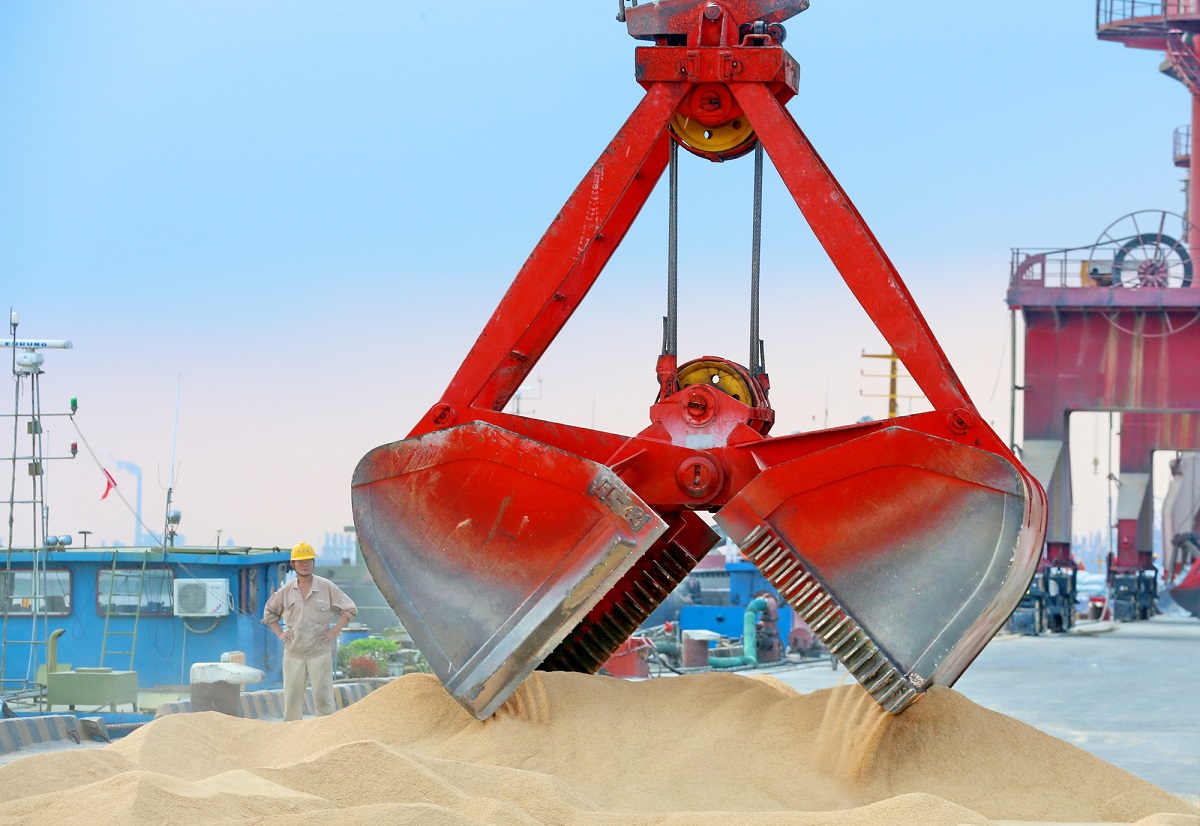The preliminary data, which correspond to April and May, confirm the fact that agriculture will be one of the driving forces for economic recovery in the aftermath of the pandemic.

San Jose, 10 July 2020 (IICA). Agricultural exports in dollars from 14 Latin American and Caribbean countries* increased by 8.5% on an interannual basis in April, despite a sharp 29.9% drop in total external sales. Preliminary data for May confirm this trend and suggest that agricultural production and trade will be one of the driving forces for economic recovery in the region.
The data, which were analyzed by specialist Joaquín Arias of the Center for Strategic Analysis for Agriculture (CAESPA) of the Inter-American Institute for Cooperation on Agriculture (IICA), are based on the indicators of the Trade Data Monitor (www.tradedatamonitor.com). The countries included are Argentina, Belize, Bolivia, Brazil, Chile, Colombia, Costa Rica, Ecuador, El Salvador, Guatemala, Mexico, Paraguay, Peru and Uruguay.
According to preliminary data for the seven countries, the month of May followed the same trend as the previous month, with agricultural exports rising by 11.1% and exports of total goods decreasing by 15.7%.
The countries that recorded the greatest increase in agricultural exports in April were Brazil (28.9%), Costa Rica (8.2%), Argentina (4.95%), Bolivia (4.9%) and Guatemala (4.7%). On the other hand, agricultural exports from Peru and Uruguay decreased significantly, by 41.7% and 16.8%, respectively.
The products whose exports increased the most in April were soybean, sugar, beef and pork in Mercosur countries, which benefited from increased demand from the Chinese market (see article).
In Central America, exports of coffee, banana and food preparations also increased. Andean countries, in turn, increased their shipments of palm oil, coffee extracts and essences, tea and herbs, fresh and dried citrus fruits, and vegetables.
“In May, despite the spread of the Covid-19 pandemic, agricultural exports grew in Brazil, Costa Rica, Paraguay and Argentina, but they decreased in El Salvador, Chile and Guatemala”, stated Arias.
That month, Brazil’s agricultural exports increased by 22.6% on an interannual basis, while total exports fell by 14.2%.
At the other end of the spectrum, El Salvador’s agricultural exports fell by 38.8%, and total exports of goods dropped by 60.5%. Paraguay, on the other hand, increased agricultural exports by 6.4%, although total sales fell by 1.7%.
Brazil is the only country in the region that has already presented its trade balance data for June, which indicate that exports increased by 32.8% on an interannual basis.
In April, global exports of goods fell by 21.4% (data from 72 countries) compared to the same month in 2019, while exports of agricultural products fell by 1.3%. “The performance of Latin American and Caribbean exports stands out compared to the rest of the world”, concluded Arias.
According to Daniel Rodriguez, Manager of IICA’s International Trade and Regional Integration Program, the behavior of agricultural exports during the first few months of the pandemic confirms the important role played by Latin America and the Caribbean in guaranteeing the availability of safe and nutritious food, not only for the region, but for the rest of the world as well.
“The data demonstrate the fact that the agriculture sector is in a privileged position to generate foreign exchange to finance socio-economic recovery projects, as well as provide income for producers and companies, and jobs for rural and urban dwellers, thereby improving access to food”, he explained.
The complete information, along with interactive graphics for each country, is available in the IICA blog “Cultivating Tomorrow’s Agriculture Today”.
IICA launched the blog with a view to monitoring the progress of key variables related to agricultural development during the pandemic, as well as to provide the views and assessments of specialists at IICA and other relevant institutions on agricultural issues related to the health emergency triggered by Covid-19.
Link to interactive graph:
https://blog.iica.int/index.php/blog/monitoreando-comercio-agroalimentario-durante-covid-19
Follow IICA’s blog:
More information:
Joaquín Arias, International Technical Specialist of the Center for Strategic Analysis for Agriculture (CAESPA)
joaquin.arias@iica.int











